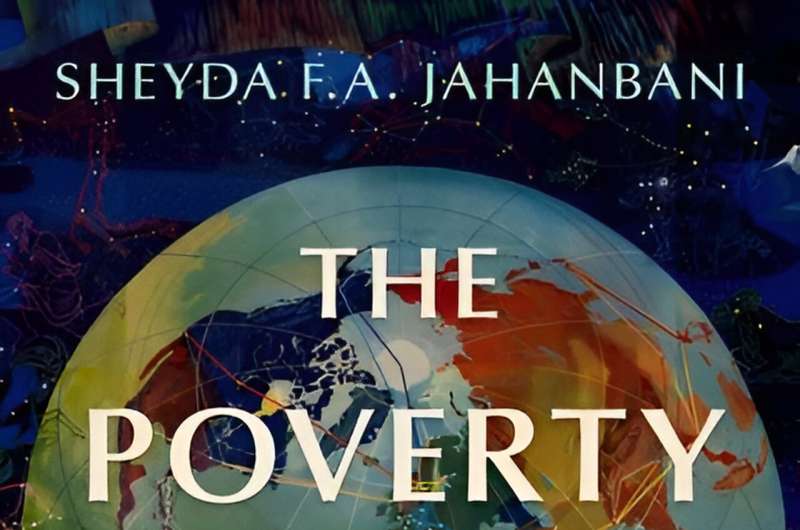This article has been reviewed according to Science X's editorial process and policies. Editors have highlighted the following attributes while ensuring the content's credibility:
fact-checked
trusted source
proofread
America's role in combating global poverty examined in new book

Aristotle famously wrote, "Poverty is the parent of revolution and crime."
But it wouldn't be until 23 centuries later that policymakers in the world's most powerful and prosperous country decided to address poverty as a global problem needing to be solved.
"Poverty creates more human misery than any other force on earth," said Sheyda Jahanbani, associate professor of history at the University of Kansas.
"When people feel scarcity in a world of abundance—which since the 19th century, our world has been—they are not as able to think beyond themselves and their immediate needs. That robs us from collectively benefiting from that human creativity and energy. Seeing riches around you and not being able to access those advantages is a really serious problem facing us as a species."
Her new book, "The Poverty of the World: Rediscovering the Poor at Home and Abroad, 1941-1968," brings together the histories of U.S. foreign relations and domestic politics to explain why, during a period of unprecedented affluence, Americans supported major policy initiatives to combat poverty. It is published by Oxford University Press.
As a historian of U.S. foreign relations, Jahanbani wanted to combine that perspective with a story that had been contained as a domestic narrative. It meant learning two very different literatures and familiarizing herself with the relevant debates in those seemingly contrasting fields.
"The book actually winds up being a revisionist history of the Cold War," she said.
The lives and theories of figures such as Bureau of Indian Affairs Commissioner John Collier, anthropologist Oscar Lewis and economist John Kenneth Galbraith are examined in the book. But Jahanbani was prompted to tackle this subject due to an unlikely source with a different viewpoint.
"When I was a kid, I learned about the war on poverty through the lens of hearing President Ronald Reagan say the government fought a war on poverty … and poverty won. Then when I got to grad school, I read a lot of books that basically took that as if it were true. So now we're just comfortable thinking that there are intractable social problems when we've put people on the moon?" she said.
So she took an honest look at the past through "fresh eyes."
"The contingent choices that individuals made and the choices they didn't make helps us see how even the comforting explanations we have for things are too simple," she said.
The title of her book takes inspiration from American sociologist W.E.B. Du Bois, who asked, "What is wrong with our civilization?" after reading about poverty in a rural Mexican village.
"He's asking, 'What is wrong with the way we're doing things?' Jahanbani said. "He's not asking, 'What is wrong with these Mexicans?' That was the guiding insight I came to: Any attempt to address the problem of poverty that does not fundamentally question affluence and who benefits from it is not going to be effective because poverty is not the fault of poor people. It is a social choice and a political choice."
A KU faculty member since 2007, Jahanbani specializes in American foreign relations in the post-1945 period. Her writing can also be found in another book published this month; her chapter "Through a Narrow Glass: Compassion, Power, and Lyndon Johnson's Struggle to Make Sense of the Third World" appears in "LBJ's America: The Life and Legacies of Lyndon Baines Johnson" (Cambridge University Press).
"One of the things I argue in my book is that there were people who saw poverty as an important strategic as well as moral issue, and they made arguments about why the United States should place poverty at the center of its global footprint," Jahanbani said. "They tried to prosecute that argument and reached a very significant place of political influence … and yet they failed."
In her conclusion, Jahanbani noted that the path America eventually favored was never a choice between "guns versus butter."
"We tried to do guns and butter. But ultimately, at the end of the day, American policymakers had more faith in guns. And that's what they chose to put more of their resources in. You can't really try to save people from their poverty while also bombing them from the sky."
Provided by University of Kansas




















